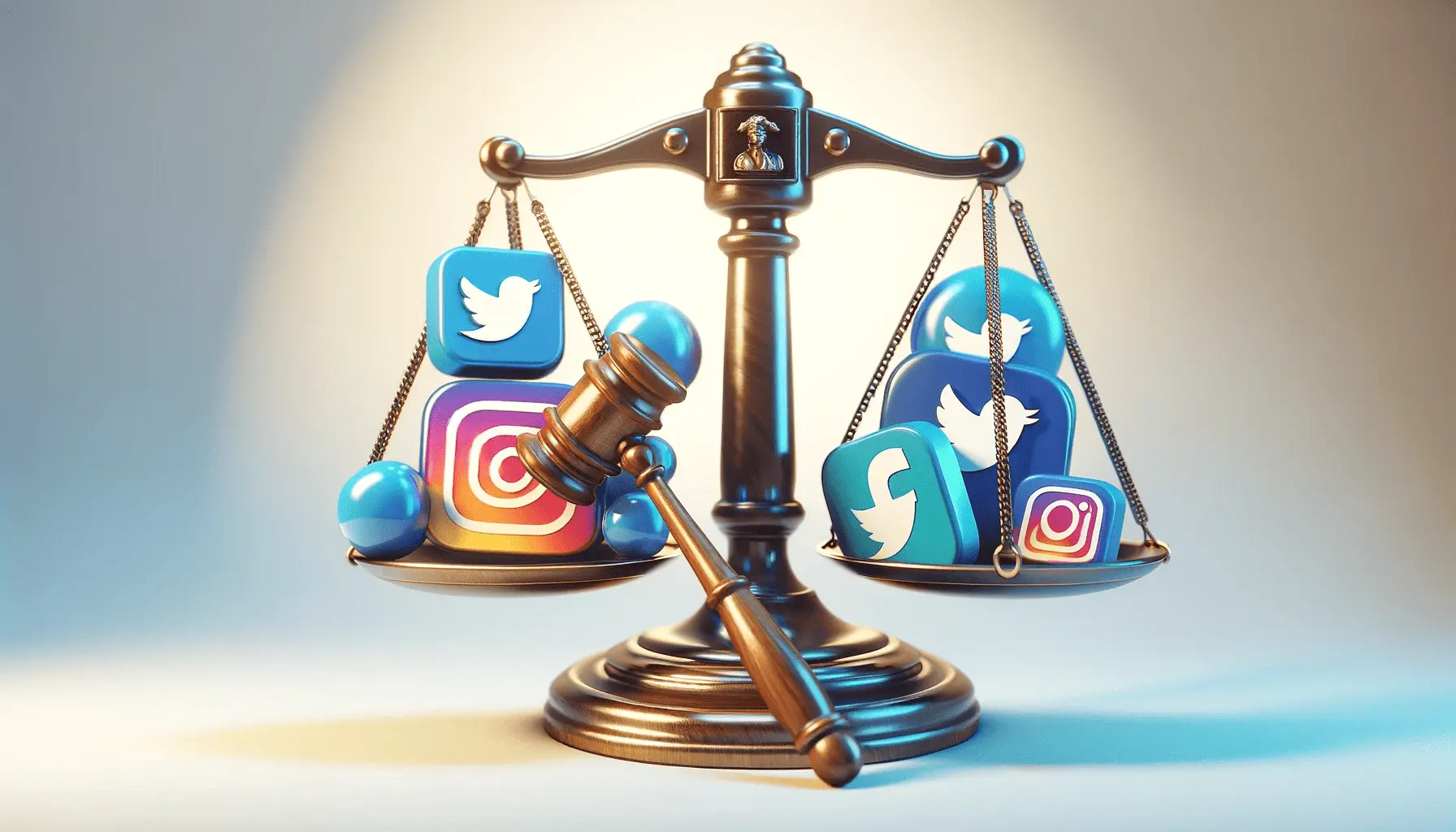
Digital law and social media are inextricably linked, reflecting the intersection of the legal world and the dynamics of online platforms. This context presents a complex and constantly evolving scenario where legal issues are taking on an unprecedented scale.
With every interaction on social media, whether it is a post, a share or a comment, new legal implications arise related to privacy, liability, freedom of expression and data protection. In this article, we will explore the challenges and legal aspects that permeate this digital universe, analyzing how the law is adapting and responding to this era of connectivity.
Social media poses unique legal issues in the digital age, including issues of privacy and compliance. In cases involving international disputes, consulting an extradition lawyer guarantees expertise in managing international legal complexities and protecting rights.
What are the main legal issues that arise in the context of social media?
In the current scenario, the legal challenges that permeate the field of digital law and social media are complex and constantly changing. One of the main challenges is reconciling the protection of individual rights, such as privacy and freedom of expression, with the need to combat the spread of false information and hatred.
Digital law and social media face challenges related to user privacy, given the enormous amount of data that these virtual environments share. The collection, storage and use of this information must comply with data protection laws, and this balance is an ongoing challenge.
In addition, the responsibility of social media platforms for user-generated content is a critical point. Determining the limits of intervention and legal liability of platforms to moderate and remove content is a complex task, taking into account freedom of expression and the regulation of online speech.
Rapid technological developments also pose challenges in keeping laws up to date and adapting them to the digital environment. Applying traditional rules in a dynamic and innovative scenario such as social media is a constant challenge for digital law.
What is the legal liability of social media platforms with regard to user-generated content?
In the universe of digital law and social media, the legal liability of platforms is a central and multifaceted issue. Social media platforms face the challenge of balancing the promotion of freedom of expression with the need to moderate user-generated content to maintain a safe and ethical environment.
In many jurisdictions, social media platforms are considered intermediaries, meaning that they are not legally liable for content created by third parties. However, this immunity is subject to certain requirements and conditions, such as prompt removal of illegal or harmful content upon notification.
Recently, many laws have begun to require social media platforms to be more transparent and accountable. This includes implementing clear policies for moderation and removal of content, as well as providing information about the processing of user data.
Pressure is growing to tighten regulations in an attempt to hold social media platforms accountable for combating misinformation, hate speech, harassment, and other harmful content. These regulations aim to ensure that platforms implement effective moderation measures and take appropriate action against violations.
The legal obligations of social media platforms under digital law are therefore constantly evolving, requiring careful analysis of local laws and regulations to understand the specific requirements related to moderation and liability for user-generated content.
What is the role of law in regulating freedom of expression on social media?
In the context of digital law and social media, the regulation of freedom of expression is a central and complex topic. The law plays a crucial role in defining the boundaries and parameters of freedom of expression on social media, taking into account the rights of users and the balance needed to maintain a safe and ethical online environment.
The right to freedom of expression is a fundamental right in many jurisdictions, guaranteeing the free expression of thoughts, views and ideas. However, this freedom is not absolute and is subject to legal restrictions, such as the prohibition of hatred, incitement to violence and defamation.
In social media, the regulation of freedom of expression aims to reconcile users’ right to free expression with the need to prevent harm, protect human dignity and avoid abuse.
See also: Cybersecurity: Protecting law firms in the digital age
- Your Guide to Finding Affordable Smoking Gear Online
- How Online Games Positively Impact Mental Health
- The Psychology of Nostalgia in Modern Media
- From Traditional to Digital: The Technological Revolution in Online Casinos
- General characteristics of Aries